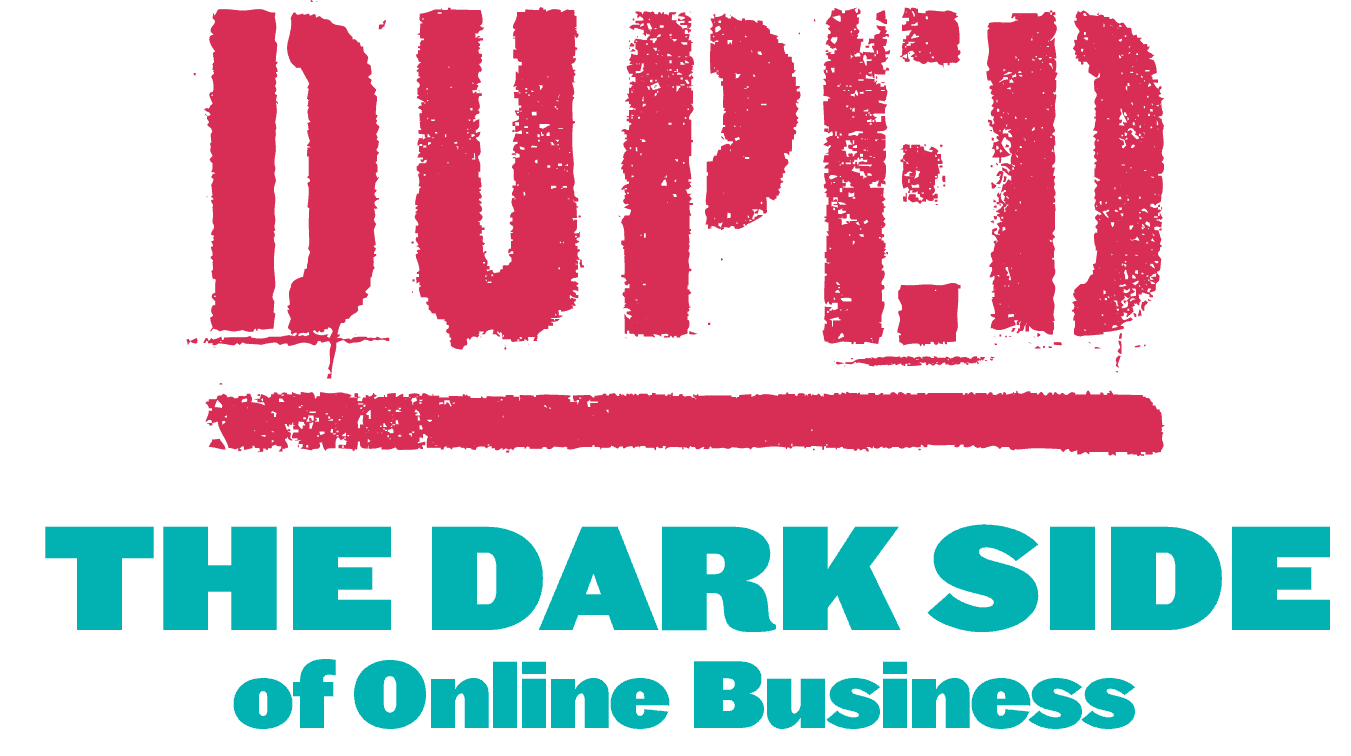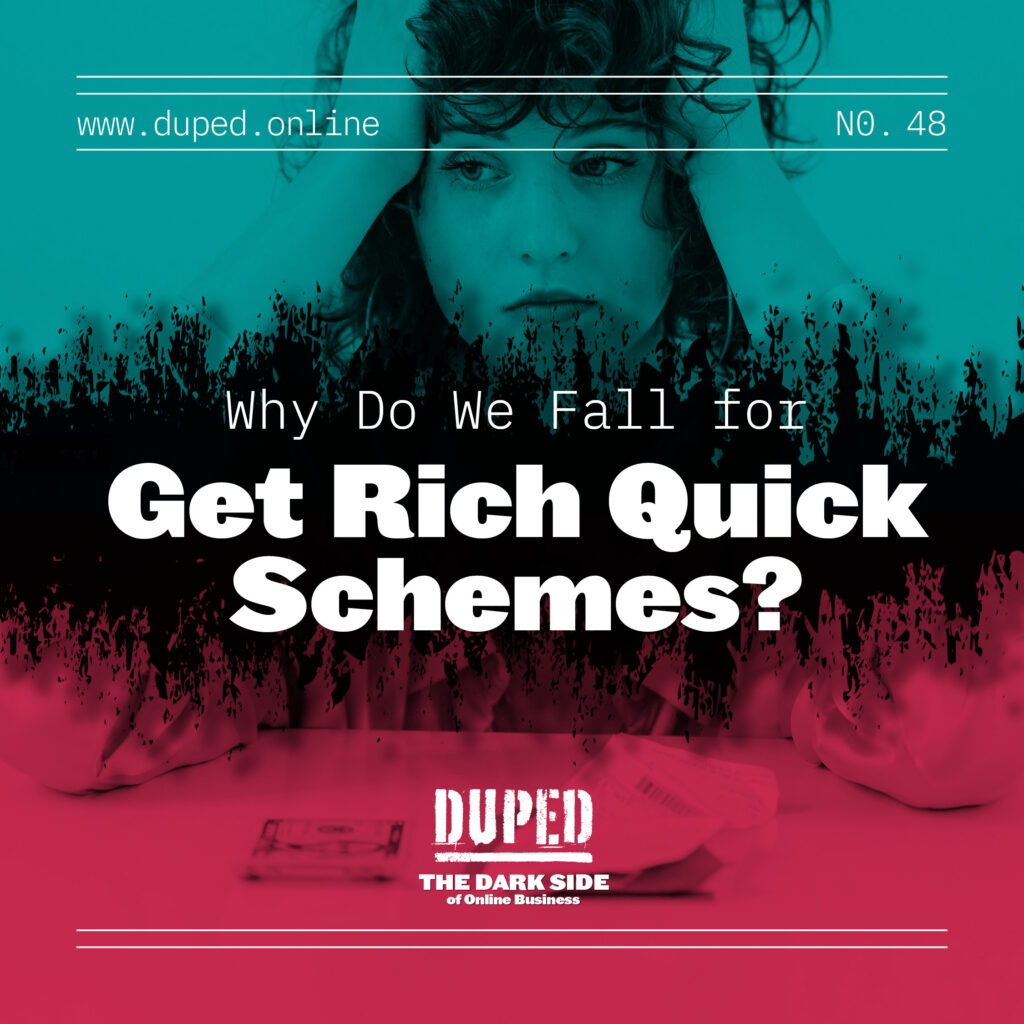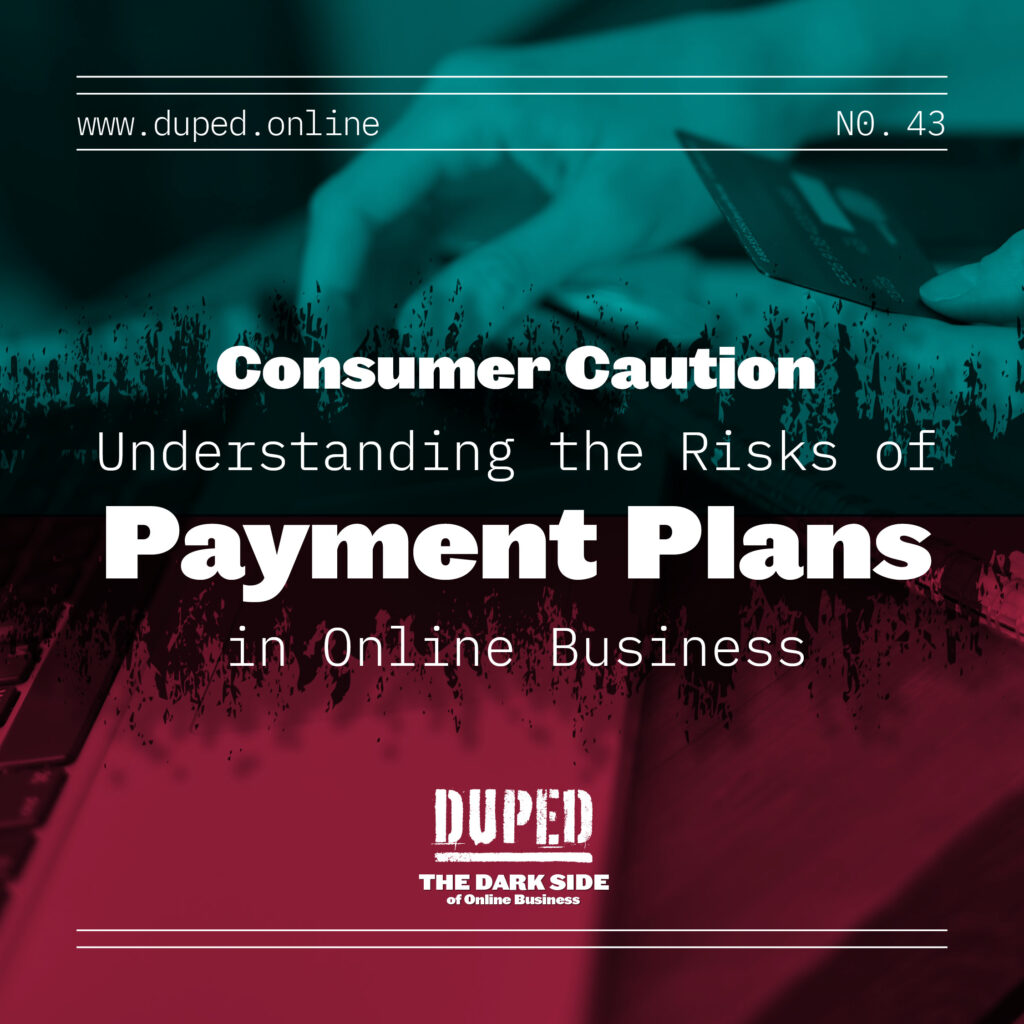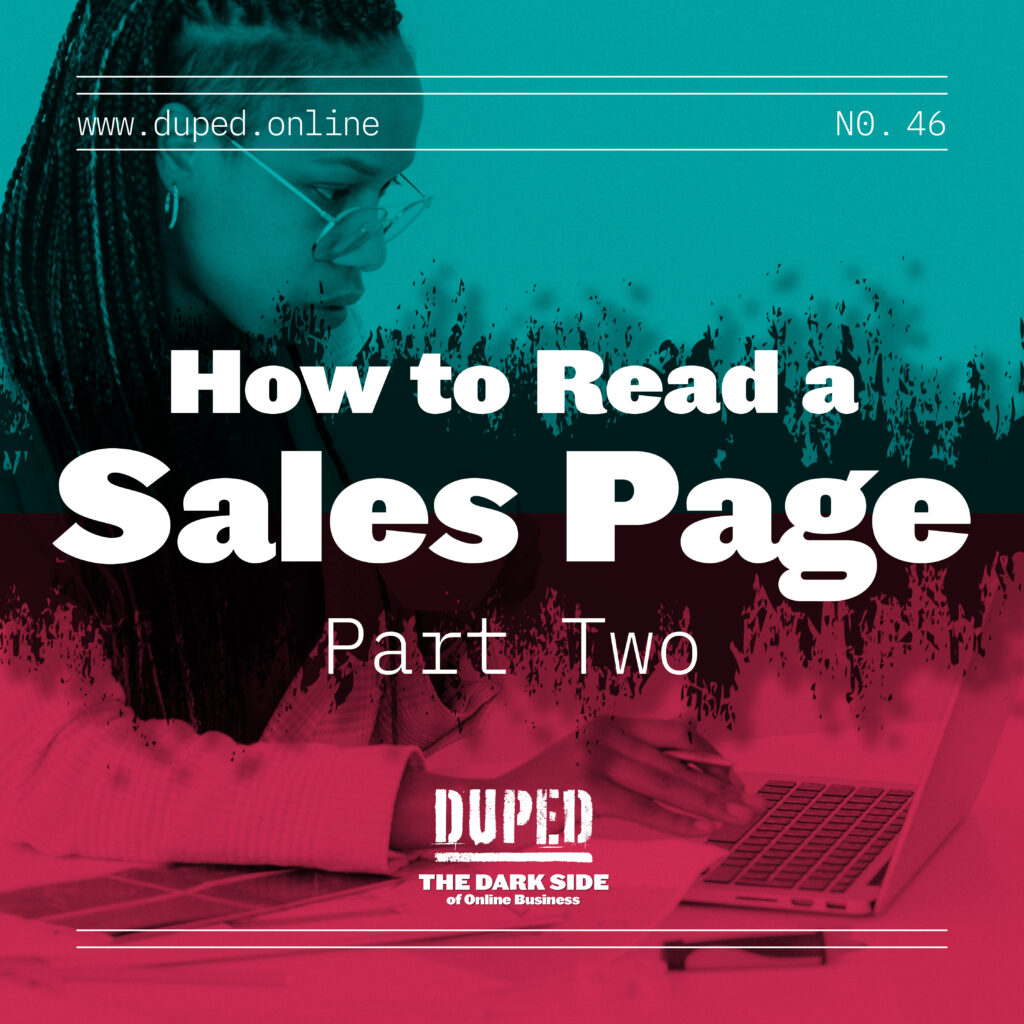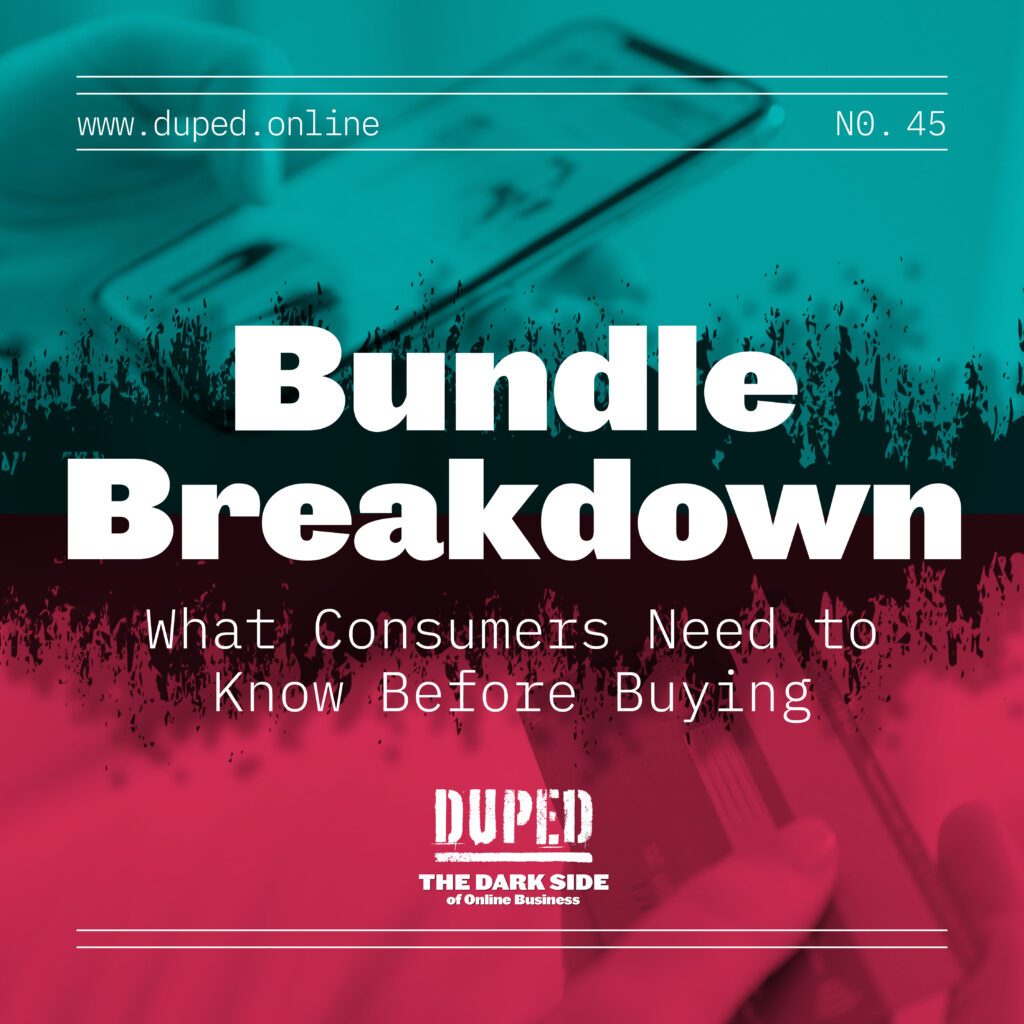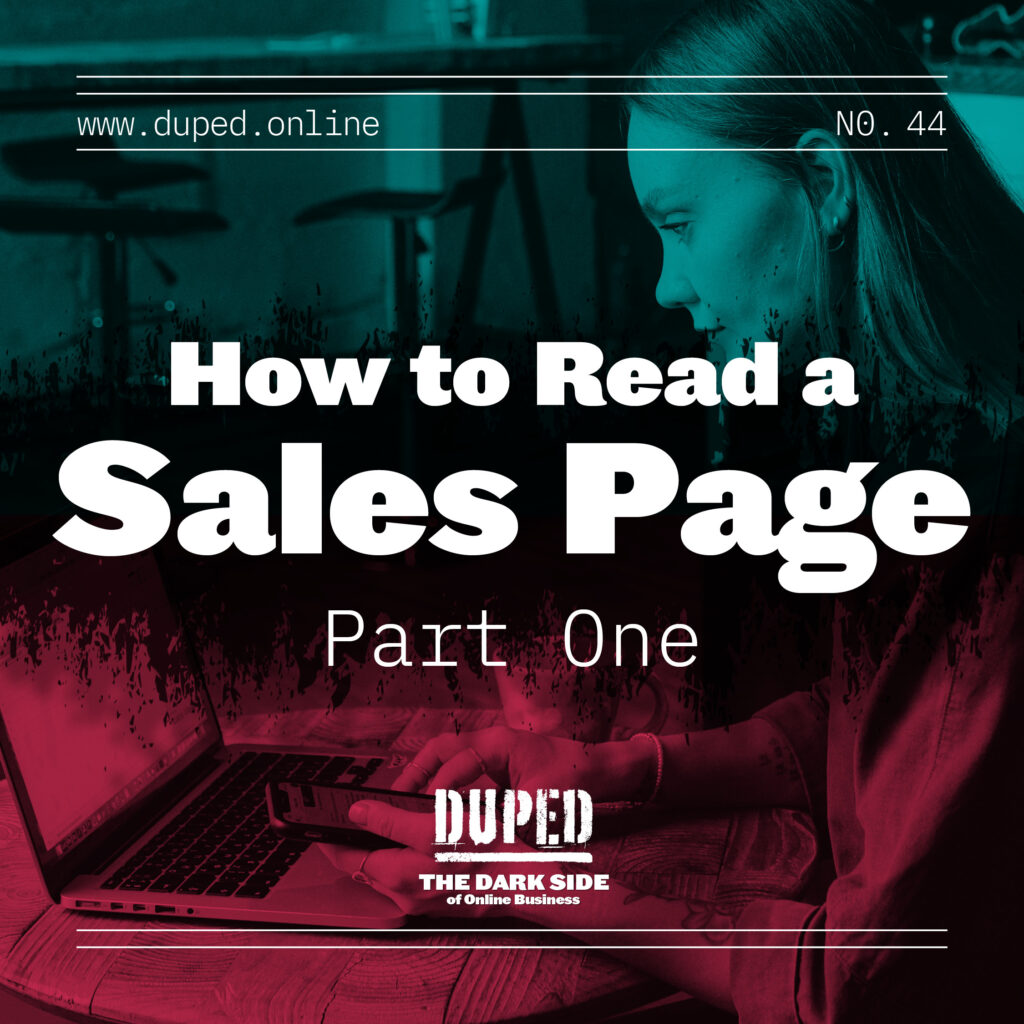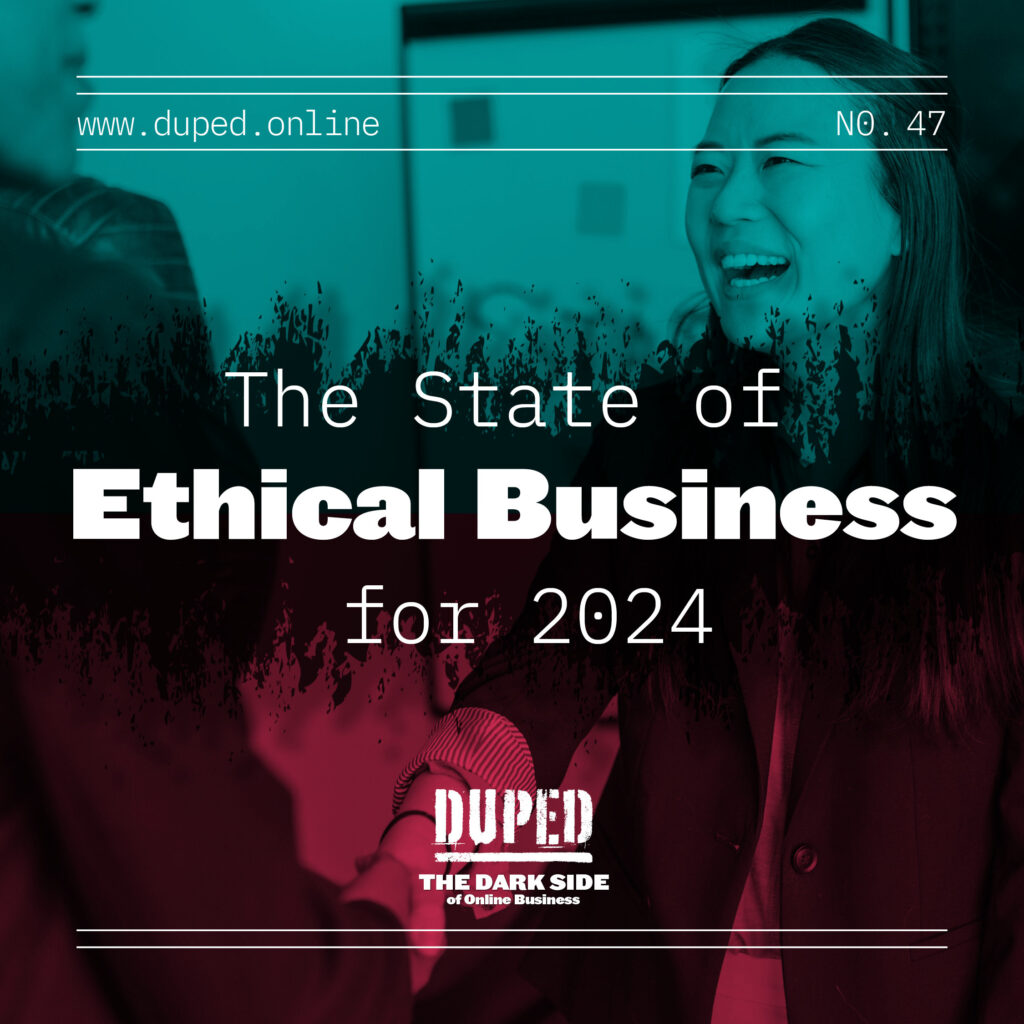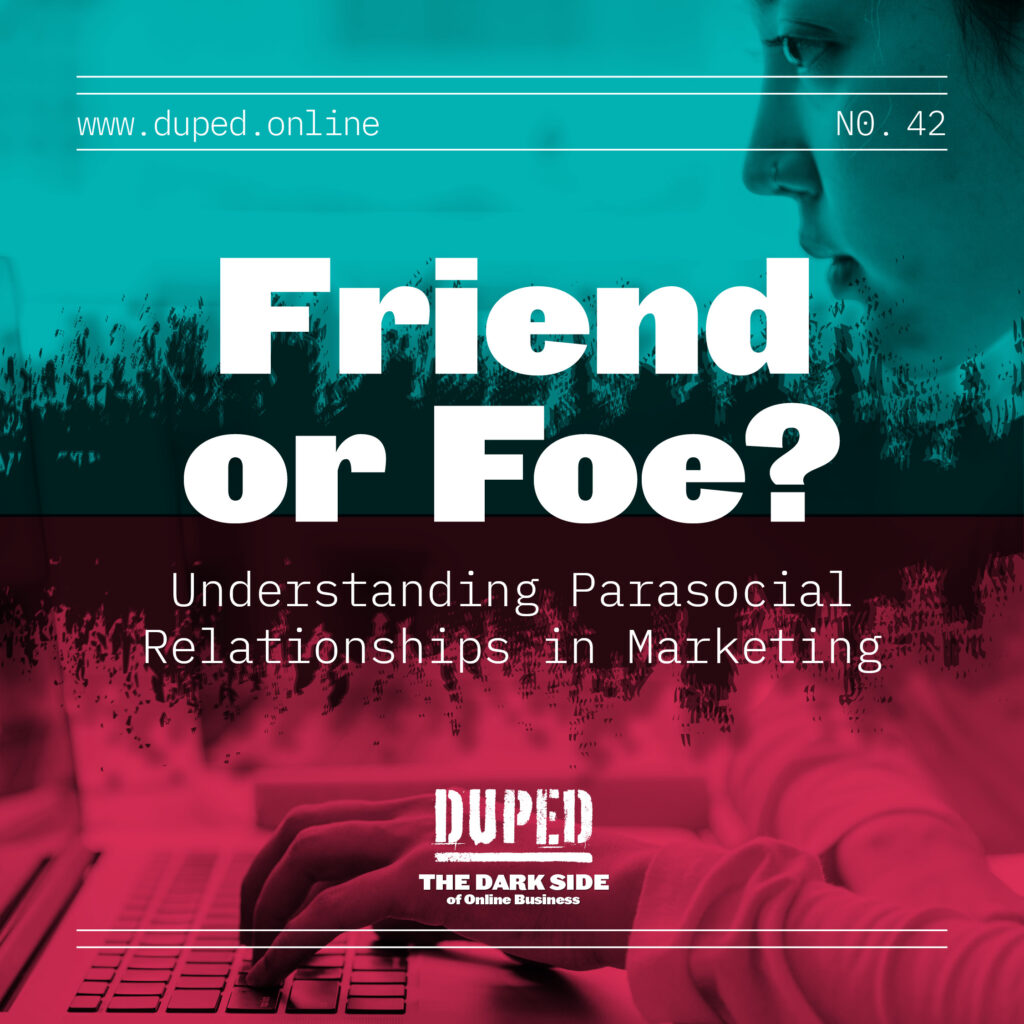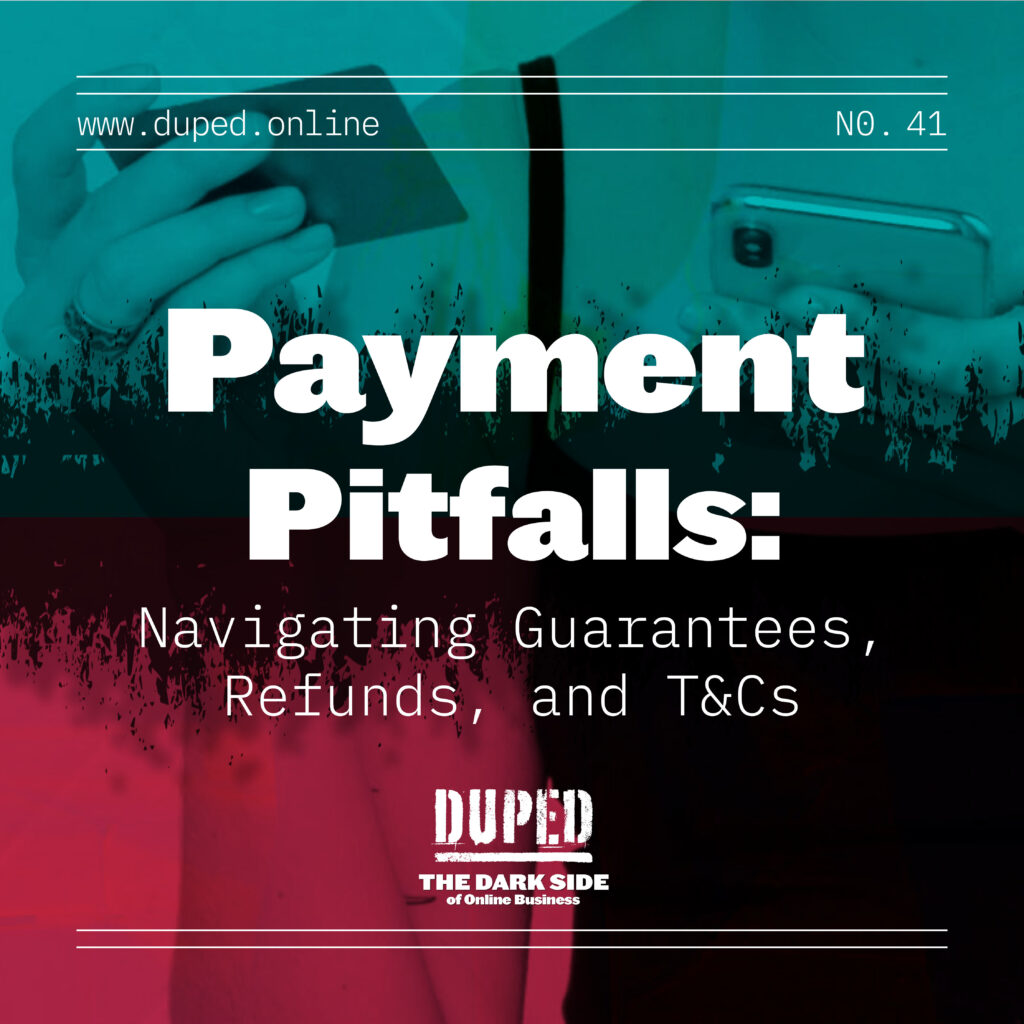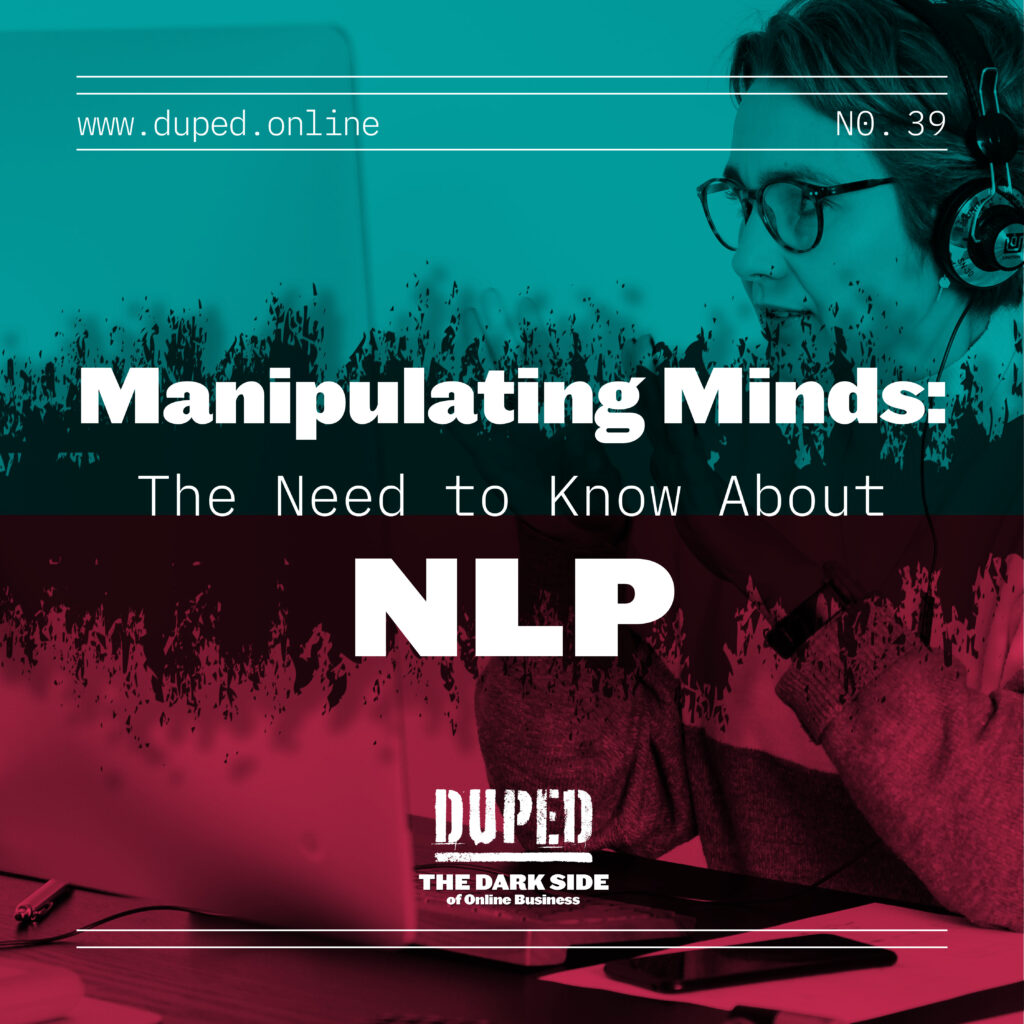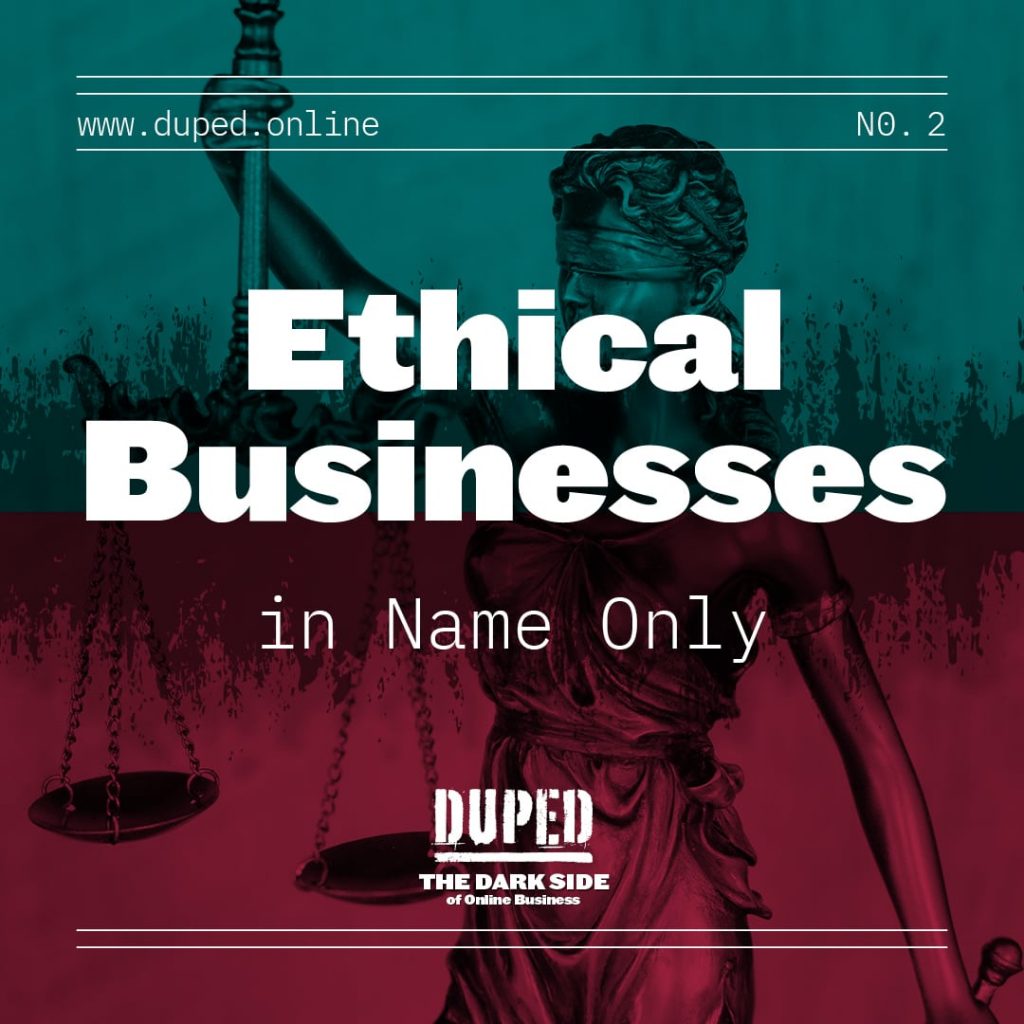
Ethical Businesses in Name Only

Ethical. It’s quite the buzzword in 2021. Online business owners are waking up to the fact that the way we are taught to market and sell is harmful. We’re seeing a rise of ethical business owners which we welcome…cautiously welcome.
Because there’s a dark side to this new wave of ethical businesses…online business owners are cashing in on this trend without changing any of their business practices. These businesses are ethical in name only. It’s the newest way that celebrity entrepreneurs are duping their customers, and that’s what we are breaking down on this episode of Duped.
Here’s an example — Parler. Yes, the social media platform where according to Vox journalists, Heilwell and Ghaffery, where users planned the January 6th insurrection. Parler claims to have a higher ethical standards.
Why are we bringing Parler up on a podcast about online business? Because it’s an example of how it’s super easy to slap the word “ethical” on a bio or in a headline.
But whose ethics are these? Just because a company says it’s ethical, that doesn’t mean that their ethical principles agree with yours.
What Are Ethics?
According to Oxford Dictionary ethics are “moral principles that govern a person’s behavior or the conduct of an activity.”
And morals are individual. Everyone’s morals are a little bit different. This makes ethics messy and just because someone says they’re ethical it does not mean they’re doing good in their business.
After all, Keith Rainere of NXVIM taught an “ethical framework of human experience” for rewiring your brain and his ethics landed him in prison for 120 years for sex trafficking, branding women, and other crimes.
Yes, these examples are extreme but we’re using these to help you pause and think about the online business owners who are calling themselves ethical.
It’s so easy to be duped when it comes to online business owners claiming that they are ethical.
We assume that ethics means “good” or “do no harm” and it simply doesn’t. Sometimes it means business as usual or it’s just a performance.
What is Ethical Marketing, Really?
Ethical marketing is not a strategy. It’s not a tactic. It’s not something you easily implement. It’s a philosophy. It’s a way of thinking about your business.
In 2004 the American Marketing Association (AMA) defined marketing ethics as the application of ethics to marketing activities.
A more specific definition from the MBA School website is:
“Marketing ethics are the moral principles and values that need to be followed during any kind of marketing communication. They are the general set of guidelines that can help companies to decide on their new marketing strategies. But then it depends on one’s own judgment of ‘right’ and ‘wrong’.”
What this means as a marketer you have to define your values and principles. You can’t cookie cutter your way to ethical marketing. Everyone’s marketing ethics will differ and that’s OK!
Case Studies & Debates in Ethical Marketing
Let’s get specific.
Let’s look at one of Robert Cialidini’s most abused weapon of influence in the online world: SCARCITY.
Think about things like countdown times or disappearing bonuses during a launch. Those are both designed to create an illusion of scarcity.
Or social proof — business owners during a launch celebrating on social media each person who signs up. That’s social proof with scarcity mixed in.
But different business owners feel different ways about these tactics. The bottom line is that ethics are messy and they’re incredibly nuanced.
Even though we’re pretty much aligned in our ethical practices, we also differ in some ways. It’s easy for business owners to claim they are ethical but then do business as usual.
Solutions: What Can You Do to Protect Yourself from Businesses That are Ethical in Name Only?
- Look for the ethical details. When you see someone say they are doing business ethically, pause and then look for their ethical principles. Evaluate how their principles align or don’t align with yours.
- Values should be clear. If you can’t find a statement of their values, ask for them. If they can’t produce them, buyer beware.
- Focus on actions. Judge business owners on how they act, not what they say.
- Spend your values. Stop giving your money to people whose values don’t align with your own.
- Define your values and principles for yourself. Then filter all your marketing and sales tactics through that lens. Make your purchasing decisions based on your values.
Your best defense against is ethical business owners in name only is slowing down and THINKING. Then deciding for yourself if that business is aligned with your own values and principles.
Links for This Episode:
Join the

Patreon

for only $7/month and get a
monthly bonus episode,
behind-the-scenes content
and more.
